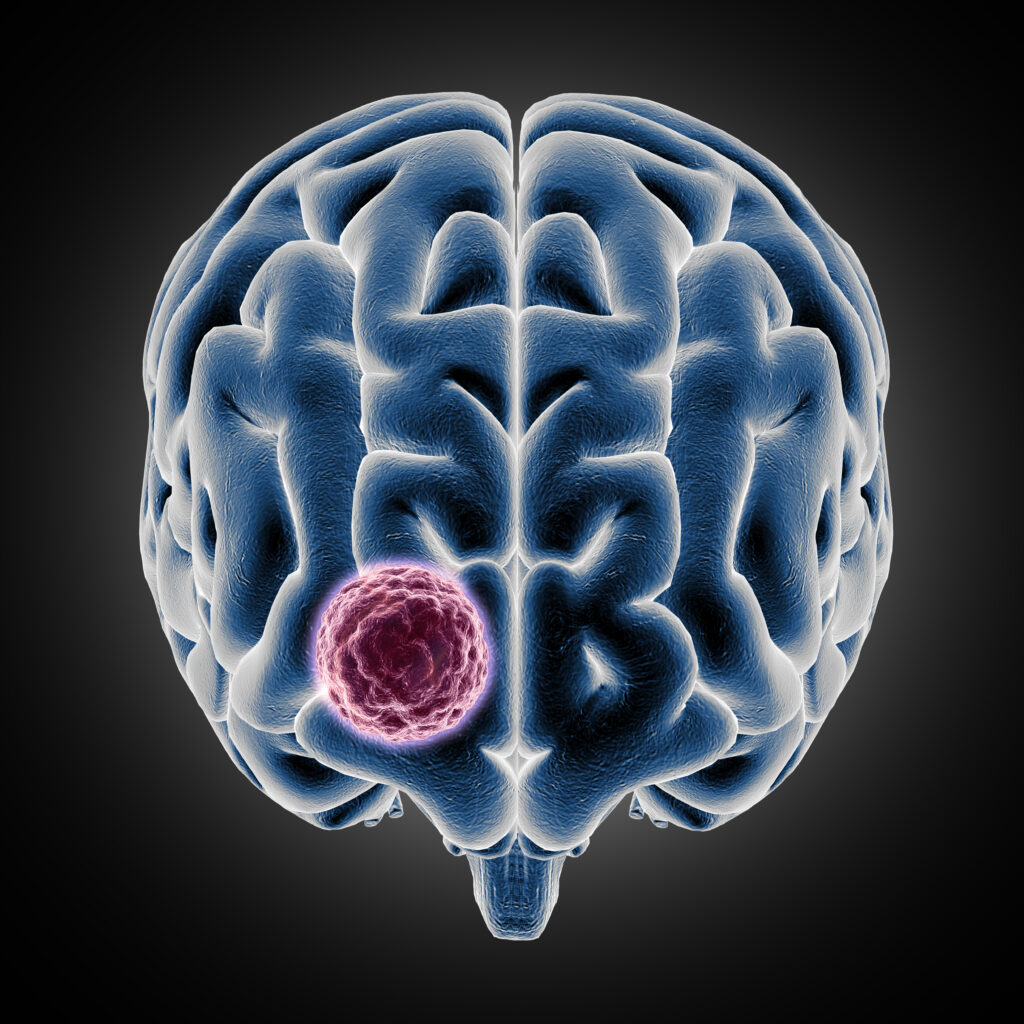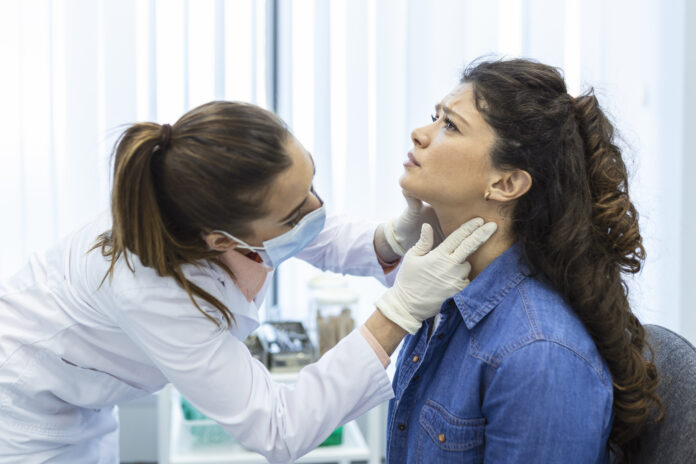The thyroid is an endocrine gland located at the base of your neck. It is a butterfly-shaped gland found just below the center of your throat. It is an intricate part of your endocrine system. The thyroid gland produces several secretions that affect different organs and functions of your body. However, disturbance in releasing these hormones causes various types of thyroid-related problems & diseases. These problems or diseases can arise when your thyroid produces too much hormone or not enough hormone. Common thyroid problems & diseases are thyroid cancer, thyroid nodules, Graves’ disease, goiter, Hashimoto’s Thyroiditis, Hyperthyroidism, and Hypothyroidism.
Moreover, the hormones secreted through the thyroid gland play a crucial role in regulating your body’s metabolism. The intricate network of endocrine glands is responsible for coordinating many of your body’s activities.
Causes of Thyroid Problems & Diseases
Several diseases are linked to the production of thyroid hormones. Underproduction of the hormone (hypothyroidism) and overproducing hormone (hyperthyroidism) can cause bothersome symptoms including weight gain, weight loss, fatigue, and irritability. In addition, some other thyroid problems and diseases include enlarged thyroid (goiter), and Hashimoto’s Disease.
Hyperthyroidism
Overactivity of your thyroid gland produces too much thyroid hormone. The condition is called hyperthyroidism. Overproduction of thyroid hormone causes many of your body’s functions to speed up. According to an estimate, 3 to 4 percent of the population of the country suffers from hyperthyroidism and in this percentage, the number of women is larger than men.
Another cause of creating hyperthyroidism in people is Graves’ disease. It affects 60% of people with an overactive thyroid.

Another condition related to thyroid functioning is called toxic nodular goiter or multi-nodular goiter which causes nodules on your thyroid. It also triggers the gland to overproduce its hormones. Common causes of hyperthyroidism also include:
- Non-cancerous pituitary gland tumor.
- Higher iodine intake.
- Inflammation in the thyroid gland.
- Higher doses of thyroid hormone medication.
- Overactive thyroid nodules.
Symptoms of Hyperthyroidism: Symptoms that indicate excessive thyroid hormone production include:
- Racing heart rate.
- Sleep trouble.
- Anxiety and depression.
- Body shaking.
- Restlessness.
- Increased sweating.
- Irritability and nervousness.
- Weight loss.
- Muscle weakness.
- Brittle nails and hair.
- Thin skin.
- Bulging eyes.
- Frequent bowel movements.
- Increased appetite.
Diagnosis and Treatment of Hyperthyroidism: A medical professional can diagnose hyperthyroidism by running tests that measure how effectively your thyroid is working or what the level of your thyroid hormone is. Generally, a blood test is run to measure the levels of thyroxine or T4 and thyroid-stimulating hormone in your blood. The pituitary gland in your brain is the production center of thyroid-stimulating hormone. TSH hormone stimulates your thyroid gland to produce its hormones. Lower TSH and high thyroxine levels are the sign of overproduction of thyroid hormones.
Sometimes, your healthcare professional might also give you radioactive iodine as an ingestion or by mouth to measure how much of it your thyroid absorbs. The thyroid gland absorbs iodine to produce its hormone, and absorption of a lot of radioactive iodine indicates that your thyroid is overactive. On the other hand, lower levels of radioactivity are not dangerous for you and can be resolved easily and quickly.
Treating this condition of hyperthyroidism through medications may damage your thyroid gland and block its hormone production. Treatment plans for hyperthyroidism include:
Radioiodine Therapy: Iodine is taken as liquid or pill by mouth. This radioactive iodine gets absorbed by your thyroid gland damages your thyroid and stops it working. This treatment option is not safe for pregnant and breastfeeding women.
Surgery: Sometimes doctors suggest removing the damaged thyroid gland through surgery. Therefore, surgery is carried out that may return your thyroid levels to typical ones.
Beta-Blockers: These are the hormonal medications used to lessen the symptoms.
Anti-thyroid Medications: These medicines help prevent your thyroid gland from producing its hormones and ease the symptoms.
From the above-discussed treatment options, two options surgery and radioactive iodine can destroy your thyroid and you may develop hyperthyroidism again. So you need to take thyroid hormone daily.
Hypothyroidism
It is the opposite of hyperthyroidism. Your thyroid gland can’t produce enough of its hormones and gets underactive. This affects some of your body’s functions and slows them down. Hypothyroidism is also caused due to Hashimoto’s Thyroiditis, damage to the thyroid gland from radiation therapy, and surgery that removes your thyroid gland.
More causes include:
- Medications, such as bipolar disorder medications, heart medications, and cancer medications.
- Hypothalamus or pituitary gland disorder.
- Thyroiditis.
- By birth hypothyroidism, also known as congenital hypothyroidism.
Some other underlying health conditions include rheumatoid arthritis, lupus, diabetes type 1 and 2, and celiac disease also increase the risk to develop hypothyroidism.
Around 3.4 percent of the population of the country is affected by hypothyroidism and the major target of the disease are the people 15 years old and older.
Symptoms of Hypothyroidism: The following symptoms help indicate too little thyroid hormone production:
- Depression.
- Memory issues.
- Fatigue.
- Dry hair and skin.
- Constipation.
- Weakness of joints and muscles.
- Slow heart rate.
- Irregular menstruation.
- Fertility problems.
- Increased sensitivity to cold temperatures.
- Coma.
- Weight gain.
Diagnosis and Treatment of Hypothyroidism: Some specific types of blood tests and imaging tests are run to diagnose hypothyroidism. A healthcare professional runs blood tests to measure levels of thyroid hormones and TSH. A lower thyroxine level and higher TSH level indicate the under-activity of your thyroid. It also elaborates that your pituitary gland is releasing more TSH that stimulates your thyroid to produce hormones.
On the other hand, radioactive iodine tests, ultrasound, and scans are some types of imaging tests that highlight the functioning of your thyroid gland.
Taking thyroid hormone pills is the main treatment option for hypothyroidism. You must be conscious about your dosage because too much use of thyroid pills can cause hyperthyroidism. However pregnant women may need higher or more frequent doses of thyroid pills during pregnancy.
Common Thyroid Problems & Diseases
Hashimoto’s Thyroiditis
Chronic lymphocytic thyroiditis is also named Hashimoto’s Thyroiditis. According to research, the most common cause of developing hypothyroidism in the country is Hashimoto’s thyroiditis. Research shows that 10 in 100 people in the country are affected by thyroid-related problems. Hashimoto’s thyroiditis can occur at any age but mostly middle-aged women suffer more frequently from this disease. This is a severe health condition when your body’s defense system starts to attack your thyroid gland to destroy it and block its ability to produce hormones.
Sometimes, you may not show obvious symptoms of Hashimoto’s but the condition will stay for years and symptoms often get subtle. Its symptoms often mimic symptoms of many other conditions and are not specific.
Symptoms of Hashimoto’s Thyroiditis: Its common symptoms are:
- Constipation.
- Fatigue.
- Depression.
- Dry skin.
- Weight gain.
- Goiter or enlarged thyroid gland.
- Thin hair.
- Dry skin.
- Heavy menstruation.
- Pale puffy face.
- Intolerance to cold temperatures.
Diagnosis and Treatment of Hashimoto’s Thyroiditis: A healthcare professional initiates the diagnosis by testing the level of TSH to diagnose this disorder. You might be suggested to run through a blood test that will check for increased levels of TSH as well as low levels of T3 and T4 hormones, produced by your thyroid gland. It is an autoimmune disorder, therefore your blood test may indicate the presence of abnormal antibodies that might attack your thyroid.
Hashimoto’s thyroiditis is still under consideration. Doctors and medical researchers are still striving to find out its authentic treatment method. Although this disorder doesn’t have any cure, hormone-replacement medications are used to raise your thyroid hormone production or lower your TSH production level. Some symptoms can be relieved by this option. This condition remains stable for years and progresses slowly but it can be easily identified at early stages.
Graves’ Disease
A doctor first described this disease around 100 years ago and the disease was named Graves’ disease after the name of the doctor. Research says that about 2 in 100 people suffer from Graves’s disease in the country and most probably, it is the main cause of hypothyroidism.
It is an autoimmune disorder that happens when your body’s defense system attacks your own body tissues by mistake. This can also trigger the overproduction of hormones responsible for regulating your metabolism.
Graves’ disease is a hereditary disorder that may be developed at any age. But it’s common victims are women.
Studies have indicated some other risk factors such as:
- Stress.
- Pregnancy.
- Family history.
- Smoking.
Symptoms of Graves’s Disease: High levels of thyroid hormones in your bloodstream trigger your body’s systems to speed up which causes such symptoms common to hyperthyroidism. These may include:
- Fatigue.
- Irritability.
- Anxiety.
- Increased heart rate.
- Diarrhea.
- Weight loss.
- Sleep troubles.
- Excessive sweating.
- Goiter.
- Altered menstrual cycle.
Some unique symptoms include bulging eyes and thickened skin on your upper feet or shins.
Diagnosis and Treatment of Grave’s’ Disease: The following tests help diagnose this disorder immediately:
Antibodies Test: Commonly affected antibodies are identified in the bloodstream through this blood test.

Radioactive Iodine Test: To measure how quickly your thyroid will take up iodine, your doctor may administer a radioactive iodine test. A high uptake may confirm the signs of the disease.
Physical Exam: An enlarged thyroid, increased rate of metabolism, and enlarged bulging eyes with high blood pressure and rapid pulse indicate that you are suffering from Graves’ disease.
Although there is still no cure to stop your immune system from attacking your own body tissues, symptoms can be controlled in most cases with the combination of treatments.
The treatment ways for controlling symptoms of disease include:
Radioactive Iodine: It damages all parts of your thyroid gland.
Surgery: It is used as a permanent solution to this disorder. If you are intolerant to radioactive iodine and antithyroid drugs, the thyroid gland is removed through surgery.
Beta-Blockers: They help control your racing heart rate, excessive sweating, and anxiety.
Anti-Thyroid Medications: These drugs prevent your thyroid from producing an excessive amount of its hormones. Treatment of Graves’ disease is inevitable because this disorder can lead to brittle bones and heart problems if left untreated.
Tips for A Healthy Thyroid Gland
Thyroid-friendly diet tips can help keep your thyroid healthy and save it from common thyroid problems & diseases. So don’t try to prevent all thyroid disorder and follow these tips for better thyroid health:
Limit Highly Processed Foods: Highly processed foods have increased risks of sub-clinical hyperthyroidism. They cause a less severe type of hyperthyroidism and cause definite symptoms.
Packaged foods such as cookies, snacks and cakes, frozen foods and hot dogs are highly processed foods that contain extracts that result in increased sugar, salt or fats. Limiting their use can help reduce the risk of thyroid dysfunction.
Add Iron to Your Diet: Iron is needed to make thyroid hormone. A deficiency of iron in your body will lead to a greater risk for hypothyroidism. If you are deficient in iron, hypothyroidism treatment medication cannot work for you. Incorporating enough iron into your daily diet is an essential step. To get more iron eat meals that contain:
- Grains, cereals, and infant formulas.
- Poultry.
- Red meat.
- Seafood.
If you are iron intolerant and having difficulty in taking such food, talk to your doctor to see if taking iron supplements could help you.
When to Seek Medical Assistance?

If you experience thyroid problems & diseases or their related symptoms, schedule an appointment with your doctor. The symptoms could be:
- Feeling very hot or very cold.
- Feeling excessive tiredness.
- Feeling the presence of nodule lumps on either side of your voice box.
- Experiencing nervousness, mood swings, depression, and anxiety.
These symptoms are a warrant for a trip to your doctor because all signs indicate a potential thyroid problem or disease.
Conclusion
Thyroid problems & diseases are typically caused by overproduction or underproduction of thyroid hormones. The common thyroid problems & diseases discussed in this article can be diagnosed through thyroid function tests, imaging, and physical examination.
Although most of the time thyroid problems & diseases are not serious and can be treated easily, some thyroid-related disorders can destroy your thyroid gland permanently including hyperthyroidism and hypothyroidism.
Therefore, quick contact with your doctor after experiencing any symptom of thyroid disorder can save you from a severe problem or disease.







